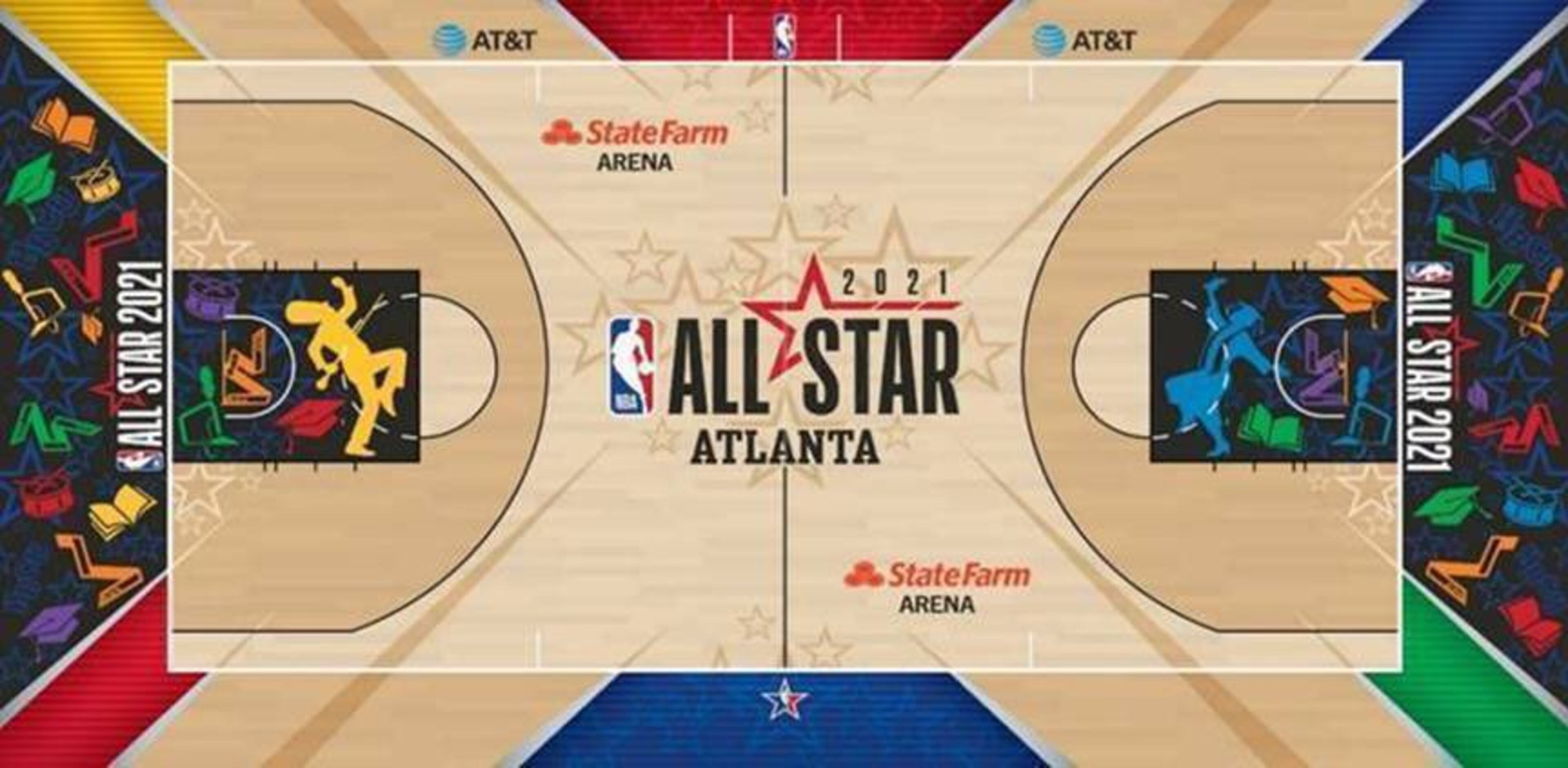As NBA All-Star game features HBCUs, all three referees are alums

When NBA referee Tom Washington told his mom, Mildred, a North Carolina A&T graduate, that this year’s All-Star game would feature HBCUs and he’d be working the game, she was blown away.
“It’s almost like traditionally, we’ve carried that HBCU torch, and I told her about it, and she was ecstatic to find out about it and said, ‘That’s awesome,’” Washington said.
In his 30th season, Washington, a graduate of Norfolk State, will be officiating his third All-Star game, joining two other HBCU graduates: Courtney Kirkland (21st season), an alumnus of Southern University, and Tony Brown (19th season), an alum of Clark Atlanta University. Kirkland and Brown will work their second All-Star games.
The NBA is featuring HBCUs leading to and throughout this year’s All-Star game, which will take place Sunday at State Farm Arena. Combined with several corporate partners, the league announced it will provide more than $3 million in funds to HBCUs via the Thurgood Marshall College Fund (TMCF), UNCF (United Negro College Fund) and Direct Relief’s Fund for Health Equity.
For Washington, it’s special for the league to highlight HBCUs in this way and reinforce how important they are as institutions.

“It’s really pretty special, when you stop and think about it,” Washington said. “I think the importance of HBCUs, historically, is the opportunity that it’s given a lot of people of color to educate themselves and prepare themselves for life that the history of it is, they didn’t always have those opportunities. So arose these schools to be able to give them opportunity and to continue that.
“I think sometimes what gets lost in it, there’s really the same quality of education that’s still going on in these schools. They may have been at one time thought of as being lesser, and I think that has dissipated so much now. … Keeping that tradition and keeping them relevant even in these times is very cool.”
There are a few different ways the league will tie in financial contributions to this year’s All-Star night, with all activities, including the game, compressed into a one-night affair.
During the All-Star game, the Western Conference and Eastern Conference teams will play for either TMCF (47 publicly supported HBCUs) or UNCF (37 member colleges), which will provide scholarship funding (each organization will receive $500,000, the leading team’s organization will receive an additional $150,000 after each of the first three quarters, and the fourth quarter will be worth $300,000).
Similar donations will be made throughout the night, with participants in the dunk contest paired with HBCUs, and through the TMCF COVID-19 HBCU Emergency Fund, financial support will be provided “that will benefit students, faculty or programs that address emergency aid, technology needs, food insecurities and mental-health services exacerbated by the pandemic.”
Those resources are crucial, Kirkland said, so HBCUs can have critical resources and infrastructure in place.
“I’m prideful because I’m prideful of being part of two organizations,” Kirkland said. “I’m prideful of being part of an organization that is on the receiving end of such an endowment, but I’m also proud to be a part of an organization that is on the giving end of it, and I think that’s what this is all about. I think it is about being able to give. … But sometimes there are those that need. So when you’re in need and you receive, then you’re next responsibility is to then give, and I think that’s how this world should operate.”
For Brown, the NBA highlighting HBCUs will give them a bigger platform so they can be appreciated and understood by a bigger audience.
“I know for me, and just speaking from being a Black male, it’s empowering to know and believe that for one, what Clark instilled in me is that I could do anything, and it provided such a learning and a socializing environment that I was able to interact with people who look like me, and culturally are like me, and it was a positive experience,” Brown said.
“I think the thing, what makes what’s the NBA doing so special, is that they just want to bring attention that this is all American history. It’s not Black history, it’s American history, and we’re all in a big melting pot, and I just think it gives an opportunity for people to have a light shed on something different than what they know, because it’s clearly about not knowing. You have to know in order to appreciate it, and unfortunately, a lot of the HBCUs have not been given the opportunity to be spotlighted and showcased, and I think this is a step in the right direction.”



